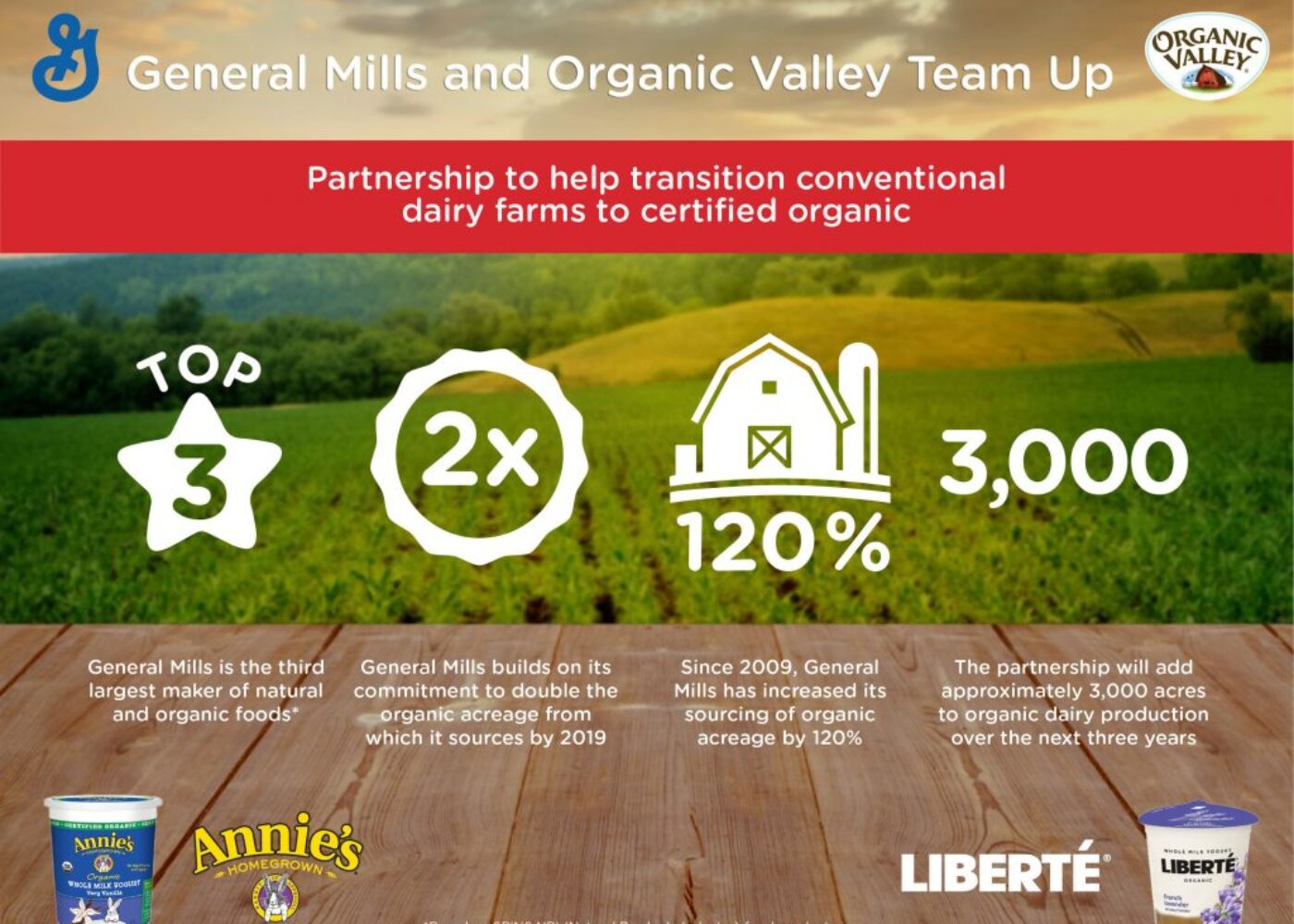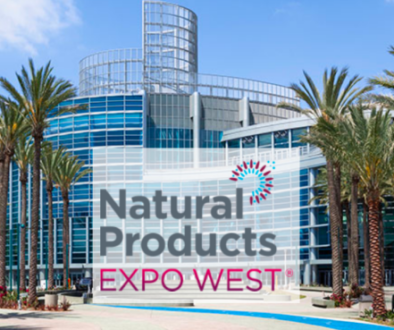General Mills Partners with Organic Valley to Help Conventional Dairy Farms Transition to Certified Organic

General Mills today announced a strategic sourcing partnership that will help about 20 dairy farms add around 3,000 acres to organic dairy production over the next three years.
You read that right: General Mills is going organic with dairy.
The program with Wisconsin-based Organic Valley will drive more acres in the U.S. into the organic certification process and builds upon General Mills’ commitment to double the organic acreage from which it sources ingredients by 2019.
You can call it “The Annie’s Effect,” as the little bunny brand has become a compass inside of the bigger company. But it is also because of the leadership inside of Mills.
General Mills has transformed its portfolio in recent years and is now the No. 3 maker of natural and organic foods with nine brands including Cascadian Farm, Muir Glen, LÄRABAR, Liberté, Mountain High, Food Should Taste Good, Immaculate Baking, Annie’s and EPIC Provisions.
The strategic alignment with Organic Valley, which is the first $1 billion organic brand, will build General Mills’ relationships with the organic farmers who will be supporting its yogurt operating unit in the U.S., which includes brands like Yoplait, Annie’s, Liberté and Mountain High.
Earlier this year General Mills introduced the Annie’s brand to the U.S. yogurt category with a new line of certified organic whole milk yogurt. In addition, the company is transitioning its Liberté yogurt brand in the U.S. to USDA certified organic, which will roll out nationwide this summer.
“To ensure we are able to deliver great tasting organic yogurt offerings to our consumers we are committed to supporting a framework in partnership with Organic Valley that will not only ensure a consistent supply chain, but also make it easier for dairy farmers to successfully manage through the transition to organic,” said David Clark, president of the General Mills Yogurt Operating Unit.
On the heels of Kashi’s announcement that they are also converting U.S. farmland to organic, this is great news.
Currently, of the over 900 million acres that are farmed in the U.S., less than 1% is organic. These companies have to convert their supply chains if they are going to keep up with the demands of the 21st century consumer.
While demand for organic food is increasing in the U.S., supply has not been able to keep up. In the U.S., acreage devoted to organic agriculture is about one percent of total cropland, according to the U.S. Department of Agriculture. General Mills has made sizeable investments to meet growing consumer interest in natural and organic foods, which is expected to drive double-digit industry sales growth over the next five years.
“We recognize that one of the biggest challenges to accelerating organic supply is enabling farmers to bridge the three-year period required to attain certified organic status under USDA rules. There is tremendous opportunity for Annie’s—with the scale of General Mills—to increase the organic ingredient supply needed to support the rising consumer interest in organic foods,” said John Foraker, president of Annie’s.
Since 2009, General Mills has increased the organic acreage it supports by 120 percent and is now among the top five organic ingredient purchasers—and the second largest buyer of organic fruits and vegetables—in the North American packaged food sector.
Think about that. General Mills is now the second largest buyer of organic fruits and vegetables.
You have to wonder what the Grocery Manufacturers Association is doing with all of this. They completely failed their members by not addressing this supply chain issue.
In addition, General Mills will launch the Organic & Regenerative Agriculture Transition Council, which will bring together sustainable agricultural leaders, farmers and industry stakeholders with the mission of advancing organic and regenerative agriculture practices. The first project will focus on dairy.
The landscape of food is changing, and the Grocery Manufacturers Association is quickly becoming a relic, as companies like General Mills, Costco, Kroger and others create the win-win solutions so needed by 21st century consumers and food companies.
It’s time to #rethinkfood and create a food system that meets the needs of 21st century consumers and food companies.





